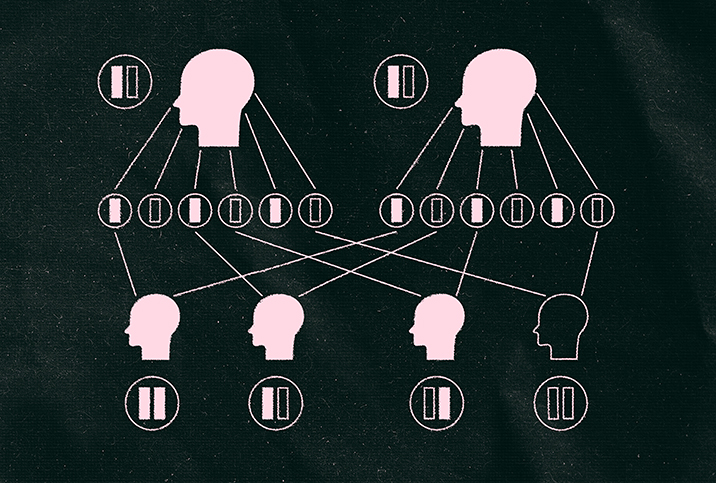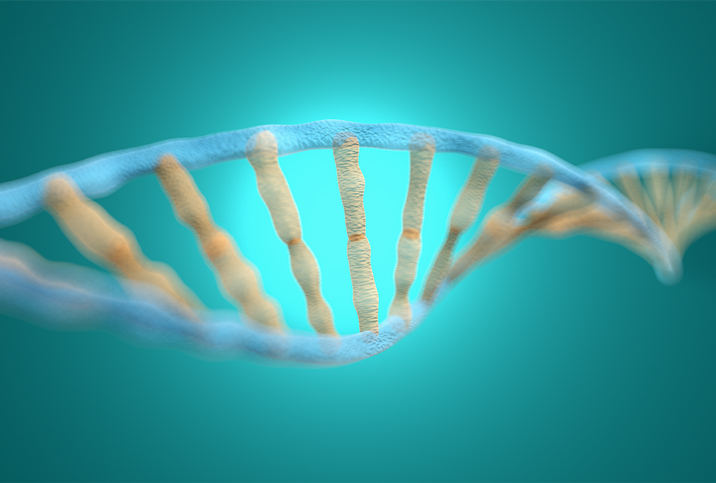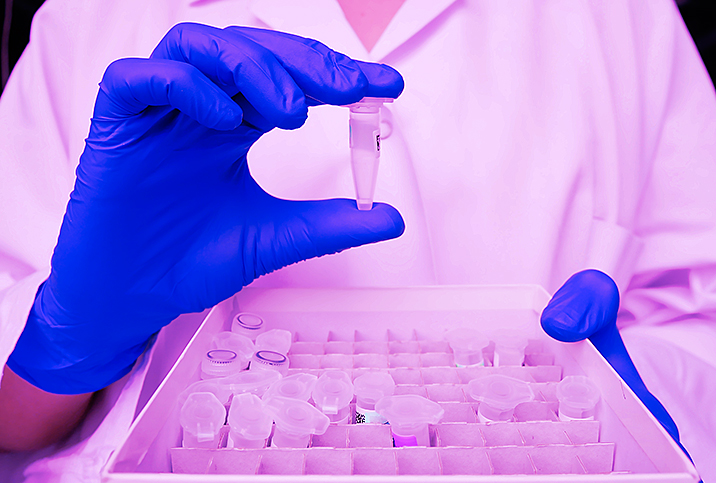Genetics and Cancer: What You Need to Know

The BRCA gene is best known for its association with breast cancer, but Jessica Long, a licensed certified genetic counselor at The Basser Center for BRCA at the University of Pennsylvania, advises that hereditary mutations in the BRCA1 or BRCA2 genes also lead to increased risk for ovarian cancer, prostate cancer, melanoma and pancreatic cancer.
"Thus, knowing this genetic information is important for men as well as for women," Long said.
So, should everyone be running out to check their family history and get a genetic screening? What genetic testing is even available, let alone recommended?
Let's talk to the experts and find out what a family history of cancer might mean for you.
How do mutations and genes cause cancer?
Kaitlyn E. Riley, a licensed certified genetic counselor in the Department of Human and Molecular Genetics at VCU Health and VCU Massey Cancer Center, noted that some genes in the body help prevent us from getting cancer. They can fix cells damaged by things such as excessive sunlight aging and carcinogenic exposure. Some genes kill off cells that become too damaged.
"If a person has a mutation in one of these genes that they are born with, then it will not work as well to fix the problems in the cells in the body," Riley said. "It doesn't mean that that person will definitely develop cancer, but it does put them at increased risk because the gene isn't working effectively to fix damaged cells."
According to Riley, it's not specific mutations that people should be concerned about but specific genes or syndromes. A gene can have thousands of mutations, and the mutation doesn't matter, but it's important to know the gene that the mutation is in.
"Put simply, a gene is a unit of instruction," said Riley. "We have genes for things like eye color, height and cancer."
When you think of breast cancer and genetic influence, you're likely to think of the BRCA1 and BRCA2 genes. However, Riley noted that there are approximately 11 genes associated with breast cancer. Furthermore, 20 genes are associated with colon cancer and about 15 are associated with ovarian/uterine cancer.
Long added that hereditary pathogenic variants (or mutations) in different genes can cause different hereditary cancer syndromes.
"When a hereditary cancer syndrome is identified, it becomes possible to better inform families about the different types of cancer they are at increased risk to develop, as well as to better estimate the likelihood of developing these cancers," Long explained.
She advised that this information can then be used to proactively screen for cancer or take measures to reduce cancer risk.
According to Long, scientists believe about 5 percent to 10 percent of cancers are due to an underlying hereditary condition caused by a harmful change (also called a pathogenic variant or mutation) in a single gene.
"The majority of cancers arise due to random chance, the aging process, lifestyle and/or environmental risk factors," Long said. For less common cancer types, she continued, the chance of a hereditary condition may be greater. For example, among women with ovarian cancer, it is estimated that up to 25 percent have an identifiable hereditary cancer syndrome.
Who should seek genetic testing?
According to Long, certain people may have a higher chance of a hereditary cancer syndrome, depending on their personal and family history of cancer.
Riley advises you seek genetic testing if any of the following factors apply:
- You are diagnosed with cancer under the age of 50, specifically if diagnosed with breast, colorectal, uterine, ovarian, pancreatic or kidney cancer.
- You have a strong family history of breast, colorectal, uterine, ovarian, pancreatic or kidney cancer.
- You have multiple types of cancer.
"All women with ovarian cancer and people with pancreatic cancer are eligible for BRCA1 and BRCA2 genetic testing," Long noted. In addition to helping inform their relatives about hereditary cancer risk, she explained this may help guide cancer treatment.
"People with Ashkenazi (Central or Eastern European) Jewish ancestry are also eligible for cancer genetic testing, since approximately 2.5 percent (1 out of every 40) of individuals with an Ashkenazi Jewish heritage have a BRCA1 or BRCA2 gene mutation," she added.
Riley added that men with aggressive or metastatic prostate cancer also automatically qualify for genetic testing.
If genetic testing comes back positive—which means a person has a mutation in a gene they were born with—this will put them at greater risk of a particular group of cancers, depending on the gene.
"Once that gene mutation has been identified, going forward, it will guide the person's medical management from there on out," Riley explained. For example, if a person has a hereditary breast cancer gene, they may choose to have a preventive mastectomy or decide to have increased screening. If there is a genetic link to colon cancer, a person might seek more frequent colonoscopies; if the link is to ovarian cancer, she might have a preventive oophorectomy, or removal of the ovaries.
"The whole goal of genetic testing is to have people be proactive of their own health," Riley said. "So, if they know they are at an increased risk of a specific type of cancer, they can actively take steps to reduce that risk and catch potential cancers as early as possible."
How to access genetic testing
"A provider specializing in cancer genetics, such as a cancer genetic counselor, is specially trained to carefully review a person's family history of cancer to determine which hereditary condition may be responsible and to order appropriate genetic testing," Long said.
Both Long and Riley highly recommended seeking the support of a genetic counselor if you are thinking of having genetic testing. There are genetic counselors in all 50 U.S. states, and genetic testing is now much more affordable and often covered by insurance. Speak to your family doctor and ask them to refer you to a genetic counselor if you have concerns about your family history of cancer.
You can also use the National Society of Genetic Counselor's "Find a Genetic Counselor" tool.
Riley cautions that there are direct-to-consumer genetic tests available, which are completed at home, with results coming in later via the mail. However, many of these at-home tests aren't certified, and often, they only test for a few gene mutations, not all.
"For this reason, I would always recommend that you go through a genetic counselor to arrange genetic testing," said Riley. "That way, you can be sure you are accessing a full range of certified tests and have someone to guide you through the results."




















